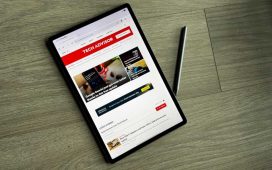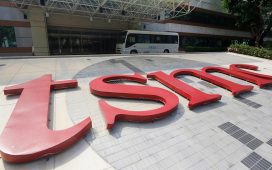Apple released its Q2 earnings on Thursday, reporting mixed results that sent stocks sliding more than 3% in after-hours trading. In its call with analysts and investors, the tech giant touched on topics including tariffs, consumer behavior, and legal challenges facing the company.
Here are six takeaways from the earnings call.
1. $900M possible tariff hit
Apple discussed the potential impact that looming tariffs imposed by President Donald Trump’s administration will have on its business, projecting that the levies will add $900 million in costs in the June quarter.
“This estimate should not be used to make projections for future quarters, as there are certain unique factors that benefit the June quarter,” CEO Tim Cook said during the call. “For our part, we will manage the company the way we always have: with thoughtful and deliberate decisions, with a focus on investing for the long term and with dedication to innovation and the possibilities it creates.”
While Cook was somewhat vague about the estimate, Business Insider’s Peter Kafka wrote that Cook seemed to suggest that the $900 million number will hold if the current tariffs remain in place, if electronics-related tariffs remain paused or if they restart, and if Apple can ship most of the products it plans to sell in the US from countries outside China.
Cook said that for the June quarter, “most of our tariff exposure relates to the February IEEPA-related tariff at the rate of 20%, which applies to imports to the US for products that have China as their country of origin.”
Cook didn’t answer whether Apple is considering eating those costs or passing them along to consumers.
2. Buyers didn’t rush to get iPhones amid tariff talk
In response to a question from a Morgan Stanley analyst, Cook said the company didn’t see any “obvious evidence” that customers were spooked enough by the talk of tariffs to go out and splurge on a new iPhone just yet — or any Apple product, for that matter.
“If you look at our channel inventory, from the beginning of the quarter to the end of the quarter, the unit channel inventory was similar, not only for iPhone, but for the balance of our products,” Cook said.
Cook added that Apple did try to frontload some of its purchasing to circumvent the worst effects of the tariffs, but demand remained relatively flat.
3. Siri’s newest features are delayed — again
Apple once again pushed back the launch of more personalized Siri features, like increased on-screen awareness and better contextual memory of your prior communications with friends and family, which were previously announced as part of Apple Intelligence.
These features, originally expected to launch with iOS 18, were delayed once already in March and do not have a new launch date.
“With regard to the more personal Siri features we announced, we need more time to complete our work on these features so they meet our high quality bar,” Cook said. “We are making progress, and we look forward to getting these features into customers’ hands.”
4. Apple is still fighting its Epic Games battle
In a Wednesday filing released just ahead of Apple’s Q2 earnings, District Judge Yvonne Gonzalez Rogers lambasted the company and its executives for their behavior during the Epic Games antitrust case, writing that they violated a 2021 injunction.
“The case yesterday, we strongly disagree with,” Cook said during the Thursday call. “We’ve complied with the court’s order, and we’re going to appeal.”
Rogers, in her order, wrote that an executive “outright lied” to the court while under oath about when Apple decided to impose a 27% commission fee on transactions facilitated through its App Store.
The court referred the matter to the United States Attorney for the Northern District of California “to investigate whether criminal contempt proceedings are appropriate.”
Cook added that the company is monitoring the situation closely but didn’t have anything additional to add, except that “there’s risk associated” with the court’s referral for further investigation and “the outcome is unclear.”
5. Apple’s plans to manufacture in the US
Cook opened the earnings call by spotlighting its plans to boost manufacturing in the US, reminding investors of a recently announced $500 billion domestic investment over the next four years.
“We’re going to be expanding our teams and our facilities in several states, including Michigan, Texas, California, Arizona, Nevada, Iowa, Oregon, North Carolina, and Washington,” Cook said. “And we’re going to be opening a new factory for advanced server manufacturing in Texas.”
Tariffs for electronics like smartphones, computers, and chips were paused on April 11, but market analysts have told BI that there is still a risk that those surcharges could return at any time. The majority of Apple’s products are still produced in China.
6. Apple is shifting manufacturing to India
Despite commitment to invest in US manufacturing, Cook says he expects that the “majority” of iPhones sold in the US during the June quarter “will have India as their country of origin.”
Meanwhile, Cook said that nearly all of the company’s other products entering the US will come from Vietnam. However, he added that China would remain the primary manufacturing hub for Apple products sold to the rest of the world.
Analysts have cautioned that manufacturing in India would cost Apple 5% to 8% more than it does in China, which would potentially squeeze margins and add logistical hurdles.
India and Vietnam each faced 26% and 46% in additional tariffs, respectively, prior to Trump’s 90-day pause on April 9. These tariffs could come back if no deal is made by the time the pause ends.











